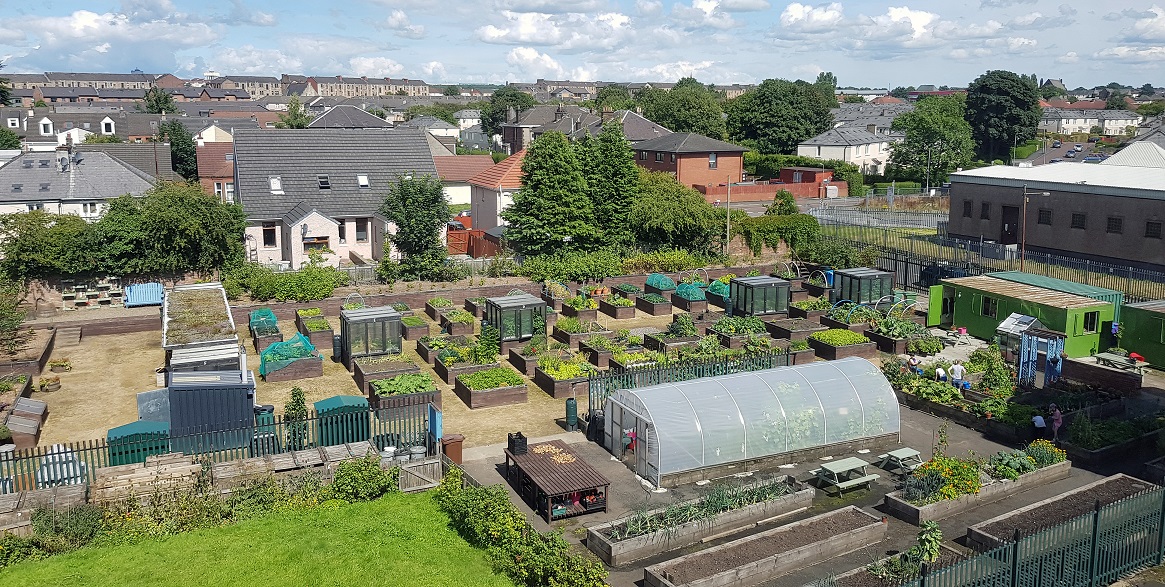Glasgow City Council receives £2.316m funding to address vacant and derelict land
Glasgow City Council has accepted £2.316 million of Scottish Government funding to help address vacant and derelict land in 2020/21 and has approved a plan for delivery.

Previously vacant land brought back into use
Vacant and derelict land is an issue for Glasgow as the city has consistently had the highest concentration of vacant and derelict land of any local authority in Scotland, with much of this land in the North and East of the city.
Tackling this issue is important as the complex mix of poor ground conditions, fragmented ownership and inadequate infrastructure relating to many sites not only restricts the availability of land ready for development and acts as a brake on Glasgow’s economic potential, but also means that derelict land can blight local areas, often disproportionately affecting the most disadvantaged communities.
The latest available (2019) figures show that Glasgow has 954 hectares of vacant and derelict land – equivalent to 71 football pitches – and this represents a 5.1% reduction from 2018, continuing the steady downward trend over the past decade. Council officers are currently working on the 2020 figure.
Around 66% of the land brought back to use over the most recent period featured new housing, including 750 homes built through the council’s Affordable Housing Supply Programme.
The £2.316m funding comes from the Scottish Government’s Vacant and Derelict Land Fund, which aims to bring vacant and derelict land into beneficial and productive use, in line with Glasgow City Council and Scottish Government objectives.
These objectives including tackling long-term (more than 15 years) vacant and derelict sites; supporting communities blighted by such sites; stimulate economic growth and the creation of job opportunities; and the development of a diverse sustainable environment.
The council’s delivery plan for the 2020/21 programme aims to bring around 61 hectares of vacant and derelict land back to productive use in a number of ways, including the remediation and/or decontamination of former brownfield and industrial sites; new and enhanced greenspace to benefit communities in areas of multiple deprivation; investigating and developing sites for food growing; and continued investment and projects with Clyde Gateway and the Glasgow Canal Regeneration Partnership.
Councillor Kenny McLean, city convener for neighbourhoods, housing and public realm at Glasgow City Council, said: “The latest figures, showing once again a year-on-year reduction in the amount of vacant and derelict land in Glasgow, are very encouraging.
“These sites absolutely act as a blight on communities in the city, and so the action the council and our partners are carrying out to tackle this issue will bring economic, environmental and social benefits. This is not something that will be remedied immediately, but this continuing progress shows we are moving in the right direction.”









